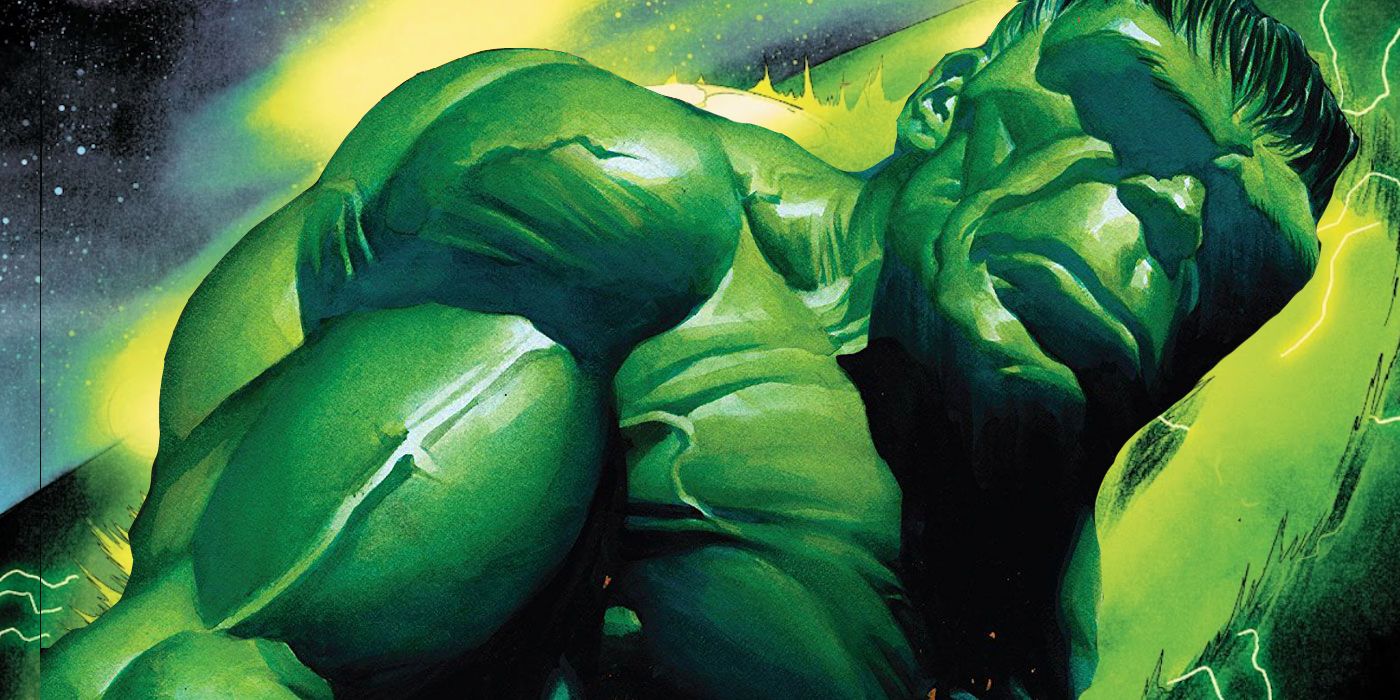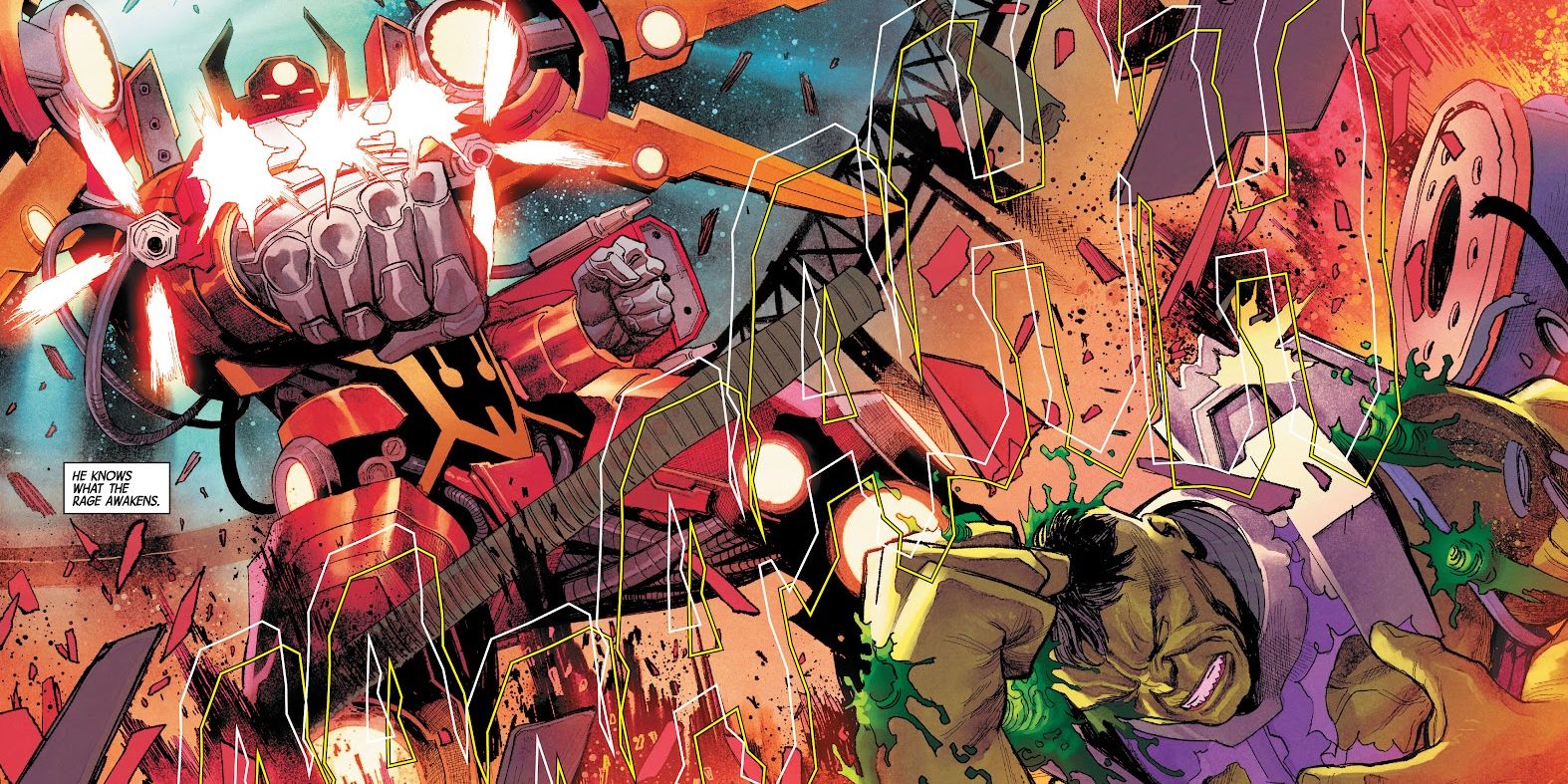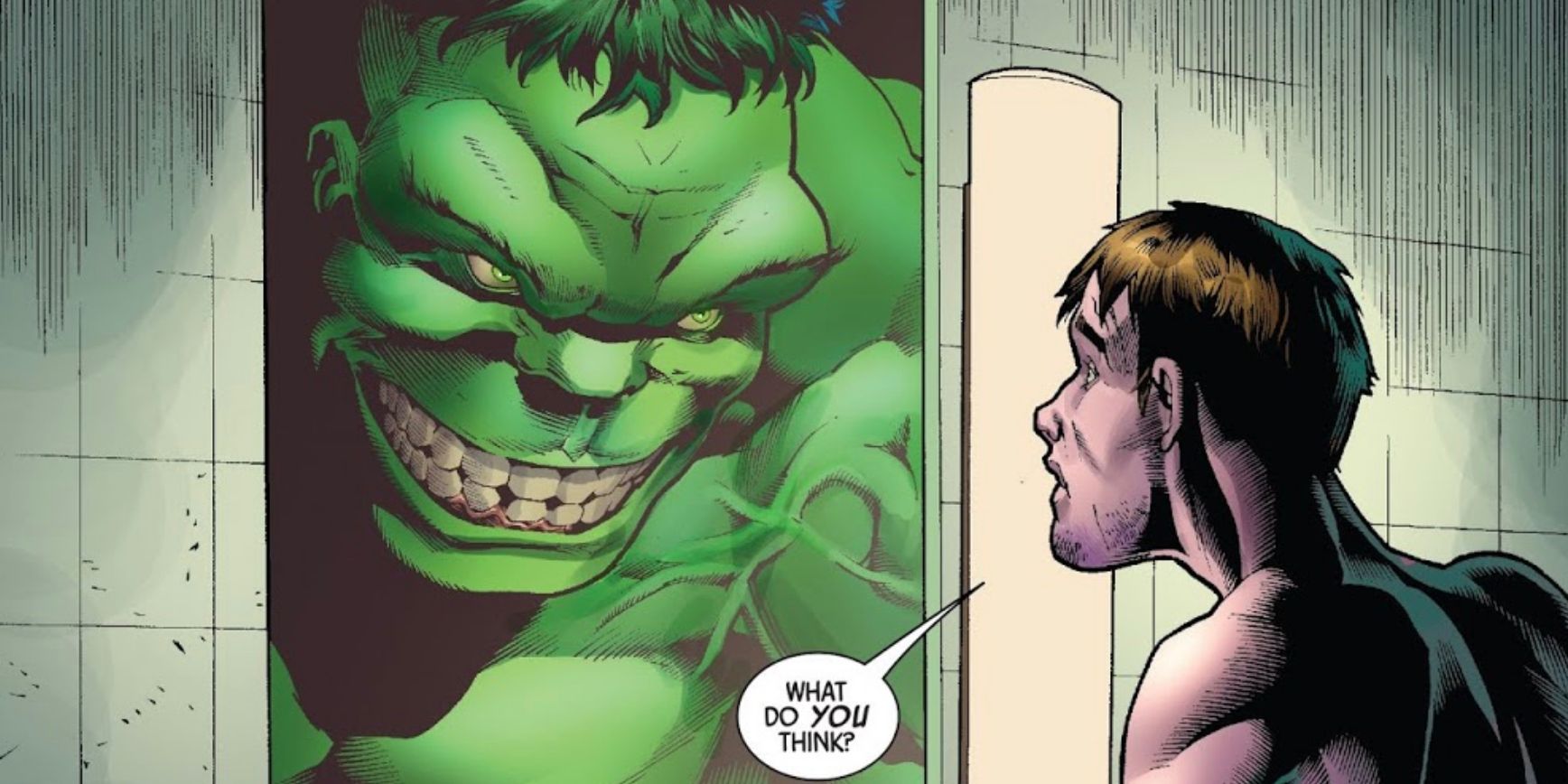The following contains spoilers for Hulk #7, on sale May 25 from Marvel Comics.
Issue #7 of Hulk (2021) by Donny Cates, Martin Coccolo, Matthew Wilson and Vc Cory Petit opens with the green goliath fighting Iron Man and Thor in quite spectacular fashion. Their battleground is the Black Hand of God, an interstellar fighting arena forged from the remains of a dead Celestial. The suit Iron Man pilots is also made with Celestial tech, emphasizing the cosmic scale of the fight. And for all that, the conflict rings hollow. The issue ends with the Hulk detonating in a massive burst of radiation, transforming Thor into an Asgardian form of the gamma-powered engine of destruction.
Over three years before the issue's release, Issue #7 of Immortal Hulk by Al Ewing, Joe Bennett, Ruy José, Paul Mounts and Vc Cory Petit started off with the Devil Hulk once again fighting Iron Man and Thor. The Hulk utterly decimates the two and the rest of the Avengers, only stopped by a massive beam of concentrated ultraviolet radiation from an orbital laser codenamed Project Helios. Both fights show off how strong the Hulk has gotten and the lengths required to stop him, but the difference between the two lies in everything else around them.
Immortal Hulk hit the ground running from its very first issue with chilling horror and a brilliant reinvention of the Hulk's core rules. Instead of coming out when Banner is angry, the Hulk comes out at night -- provided Banner is dead. Banner dies when a gas station robbery goes wrong, and then the Hulk shows up later to punish the killer. When he asks if he's a good person, a more intelligent and savvy Hulk responds with a sickening "What do you think?" as his hands reach in and obscure the panel's view. The comic book ends with the same words, repeated by Banner as he looks in the mirror, his reflection replaced with the Hulk's grinning face.
The rest of Immortal Hulk would continue to grapple with whether Banner and the Hulk were good or evil but unspooled to a cosmic scale as Ewing introduces concepts from Jewish theology. Issue #13 of the series asks if the Hulk is destruction or mercy. That question looms over the rest of the series, and in its final issue Joe Fixit confronts the One Above All, the comic's stand-in for an omnipotent creator. He asks why there needs to be a Hulk and why Bruce Banner needs to suffer.
The One Above All responds by bringing the series back to its roots, asking if the Hulk and Bruce Banner are good people. The comic's thesis lies in the contemplation of the nature of evil and why a well-meaning god would create a world with evil. The answer isn't definitive and asks a further question on whom the Hulk will become in the future. The comic book series ends with Banner having a new lease on life, walking off into the golden dawn of a New York City filled with possibility.
A new series could not ask for a better starting point -- or more to live up to. There are numerous paths a new Hulk series might have taken, but the one fans got instead chooses to throw Banner back into conflict almost immediately, pitting him against Iron Man in its very first issue. It, too, features a radical reorganization of the rules surrounding Hulk, with Banner in control of his power via a mental construct resembling the bridge of a starship.
The next few issues feature Banner battling greater and greater foes with his new form, pushing the Hulk "fueling" his mental starship to the limit. Rushed combat after rushed combat is a stark change from the seemingly-ponderous narration of Ewing's issues. The Immortal Hulk showed that even a character so tied to pure violence as the Hulk could be turned to more artful ends. His violence can be the vessel to ask larger questions about the human condition. In this light, Hulk (2021) needs to slow down -- and ask more questions.



